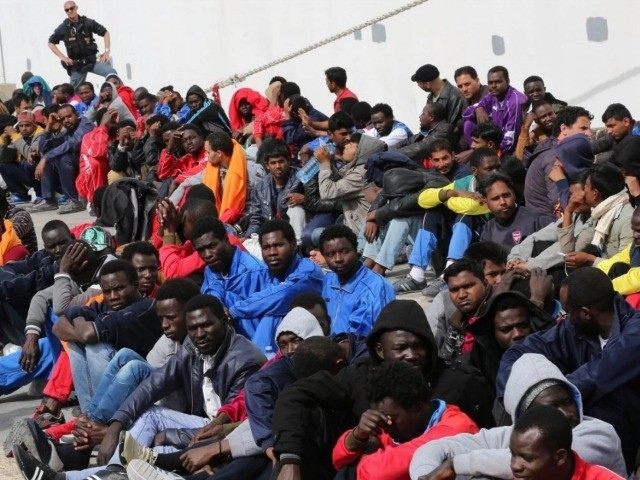In the wake of a horrible tragedy in the Mediterranean that appears to have drowned over 800 refugees, the European Union called a summit, scheduled to begin on Thursday, to consider options for dealing with the Libyan crisis. According to a report at the Telegraph & Argus, experts are “warning the death toll could reach the tens of thousands as growing numbers of desperate migrants take to the waters in overcrowded and unseaworthy boats.”
British Prime Minister David Cameron said in advance of the summit that he would consider putting more of his country’s resources behind an enhanced search and rescue operation, possibly including one of the Royal Navy’s largest ships, the HMS Bulwark.
However, Cameron also called for a “comprehensive approach” beyond enhanced rescue operations. “Let’s also go after effectively the modern slave traders,” he urged. “Let’s also try and stabilise these countries – not just Libya but also Nigeria, Somalia, Eritrea, Ethiopia. It’s these unstable countries that people are coming from that’s part of the problem.”
Italy’s Defense Minister, Roberta Pinotti, even more pointedly suggested targeting human traffickers with military force, in addition to setting up refugee camps in territory adjacent to Libya – removing the need for migrants to make a perilous journey across the Mediterranean, where so many of them have drowned.
“We know where the smugglers keep their boats, where they gather,” Pinotti said. “The plans for military intervention are there. We think it’s the moment in which Europe decides, forcefully, to have an international police operation, which will undo this band of criminals.”
Pinotti volunteered Italian leadership for such a military operation, given their proximity to Libya, provided Italy has backing from the EU and United Nations. Italian Premier Mario Renzi compared such a prospective effort to successful EU naval operations against pirates off the Horn of Africa.
London mayor Boris Johnson went even further than that, and suggested sending British special forces in to take out the smugglers. Others, such as Maurice Wren of the British Refugee Council, argued against focusing too heavily upon the smuggling boats, recommending, instead, that the EU address “the reasons why people are forced to board them in the first place.”
The chief of the EU’s border agency, Fabrice Leggeri, estimated “there are between 500,000 and one million migrants ready to leave from Libya,” according to a report at International Business Times. That would be four or five times as many refugees as Europe has seen so far.
Preventing their death at sea as they cross the Med is only part of the problem; there is also the question of where and how the migrants will live, concerns about the health problem they pose (One boatload of migrants brought to Italy this week had to be isolated due to an outbreak of scabies.), and, of course, fears that jihadis could infiltrate Europe by mingling with the refugee population. In fact, Leggeri said he has “evidence that migrants have been forcibly boarded on vessels at gunpoint,” suggesting the terrorists and warlords of Libya are keenly interested in keeping those migratory paths open.
There is little sign that recent massive drownings in the Mediterranean will dissuade refugees from making the journey. “We prefer to die trying than stay back there and die,” said a Nigerian migrant quoted by the Minneapolis Star Tribune. “Stay at home and get shot dead or maybe burnt to death. I just prefer to die while trying or survive.”

COMMENTS
Please let us know if you're having issues with commenting.